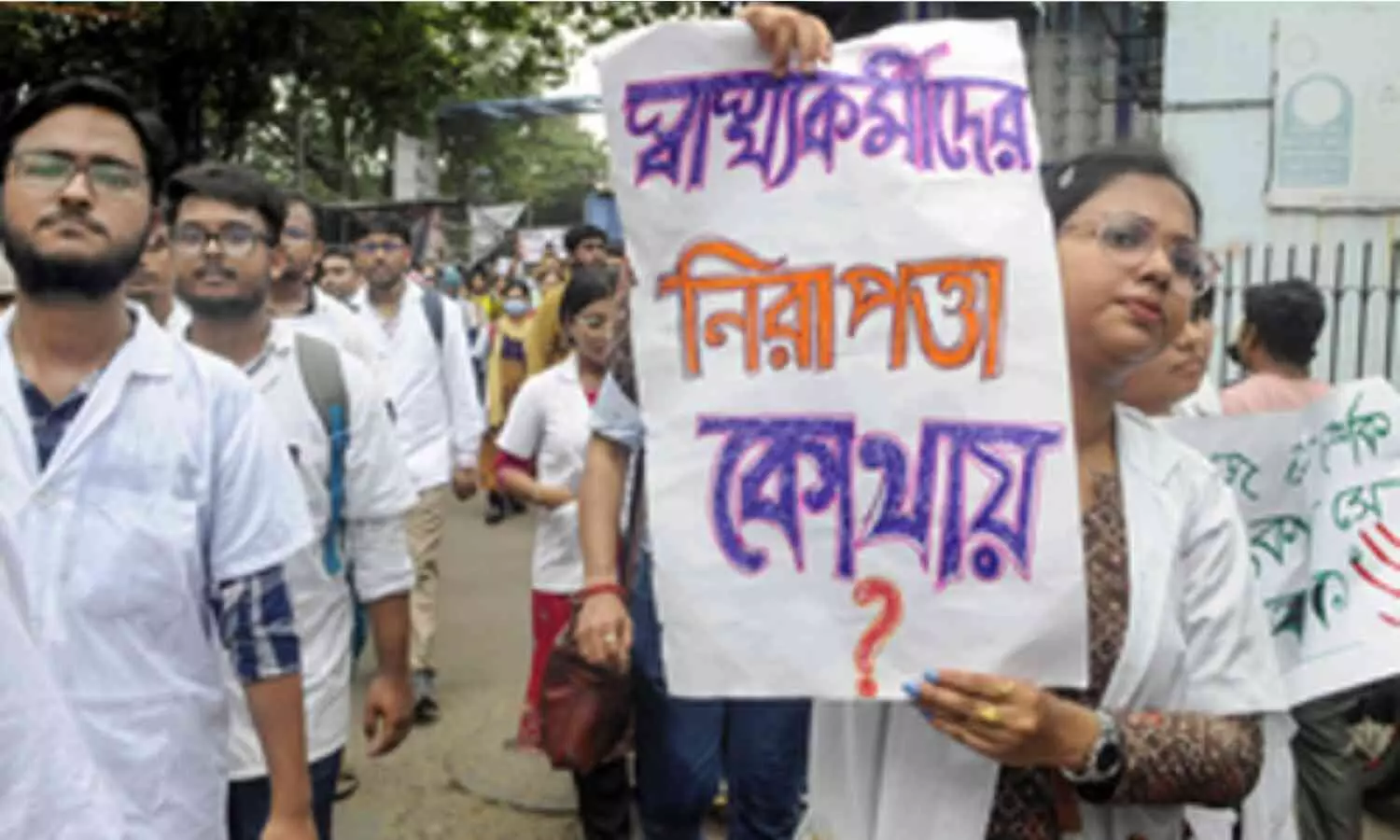SC Orders WB Police to Allow Peaceful Protests; CBI Probe in Kolkata Hospital Case to Proceed

New Delhi: On Thursday, the Supreme Court directed the West Bengal Police not to interfere with peaceful protests following the tragic incident at Kolkata's R.G. Kar Medical College and Hospital, where a trainee doctor was raped and murdered earlier this month.
"We categorically reaffirm that peaceful protests shall not be disturbed and disrupted. The state shall not take any action against those who are peacefully protesting against the incident at state-run RG Kar Medical College and Hospital," a bench presided over by CJI D.Y. Chandrachud said.
The Bench, also comprising Justices J.B. Pardiwala and Manoj Misra, told senior advocate Kapil Sibal, representing the West Bengal government, that the apex court has not injuncted the state police from exercising such lawful powers as entrusted in terms of law, clarifying that the protestors should also comply with the requirements of the law.
"Let the investigation continue," it remarked, taking on record the status report filed by the Central Bureau of Investigation (CBI) as well by the Kolkata Police in relation to the vandalisation of the hospital premises on the night of August 14.
The Supreme Court also asked the jurisdictional court to decide, by 5 p.m. on Friday, the application of the investigative agency seeking permission for a polygraph test of the accused.
Further, it asked the National Task Force (NTF), set up by the government on its direction, to give a hearing to diverse medical associations while formulating effective recommendations relating to the safety, working conditions and well-being of doctors and medical professionals.
"To facilitate filing of suggestions before the NTF, we direct the Secretary in the Union Ministry of Health and Family Welfare to open a specific portal on the website of the ministry on which associations and different stakeholders may submit their suggestions for consideration before the committee," the SC ordered.
Urging medical professionals across the country to return to work, the apex court assured the resident doctors and interns that no adverse action would be taken against them for participating in protests.
During the hearing, the CJI-led Bench observed: "Ask them (doctors) first to return to work. Once they return to work, nobody is going to take adverse action against the doctors. Let them first come back to work and then, if there is any difficulty, we will make sure that no adverse action is taken against the doctors."
It added that "the poor people coming to hospital cannot be left behind in the lurch" and raised concerns about how public health infrastructure would run if doctors did not resume work.
The SC reiterated: "Let all doctors resume work. Please rest assured that once the doctors resume duty, then we will prevail upon the authorities to not take any adverse action."
Asking all the state governments to address the safety concerns of doctors and medical professionals, the apex court directed the Union Ministry of Health & Family Welfare to convene a meeting with all the Chief Secretaries and Director Generals of Police within a period of one week.


